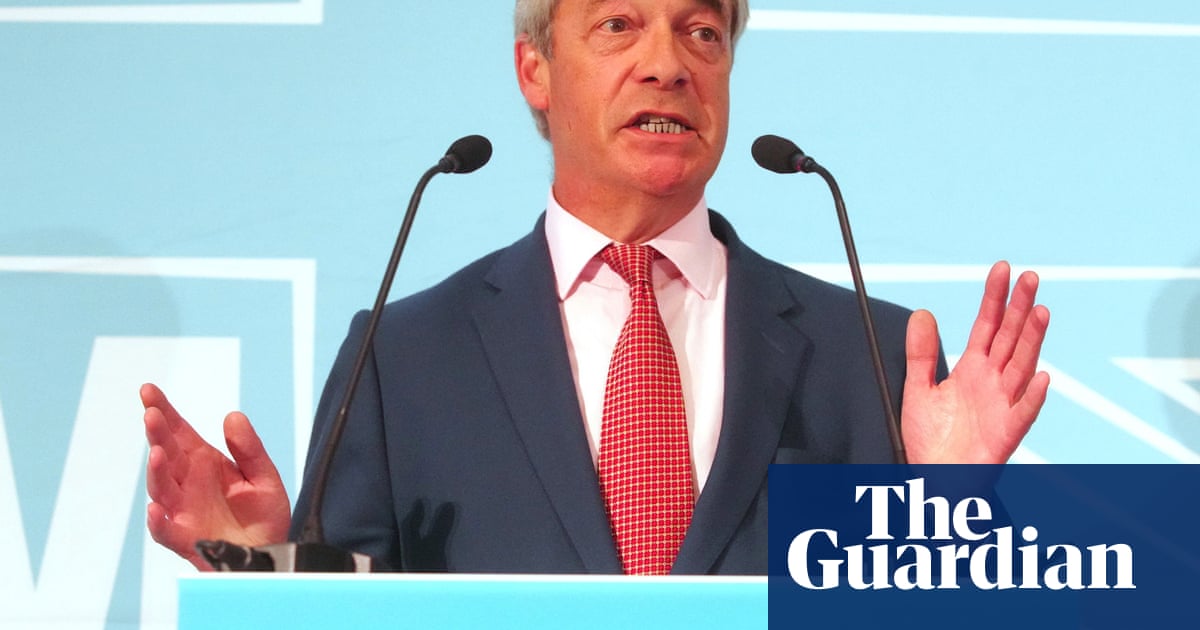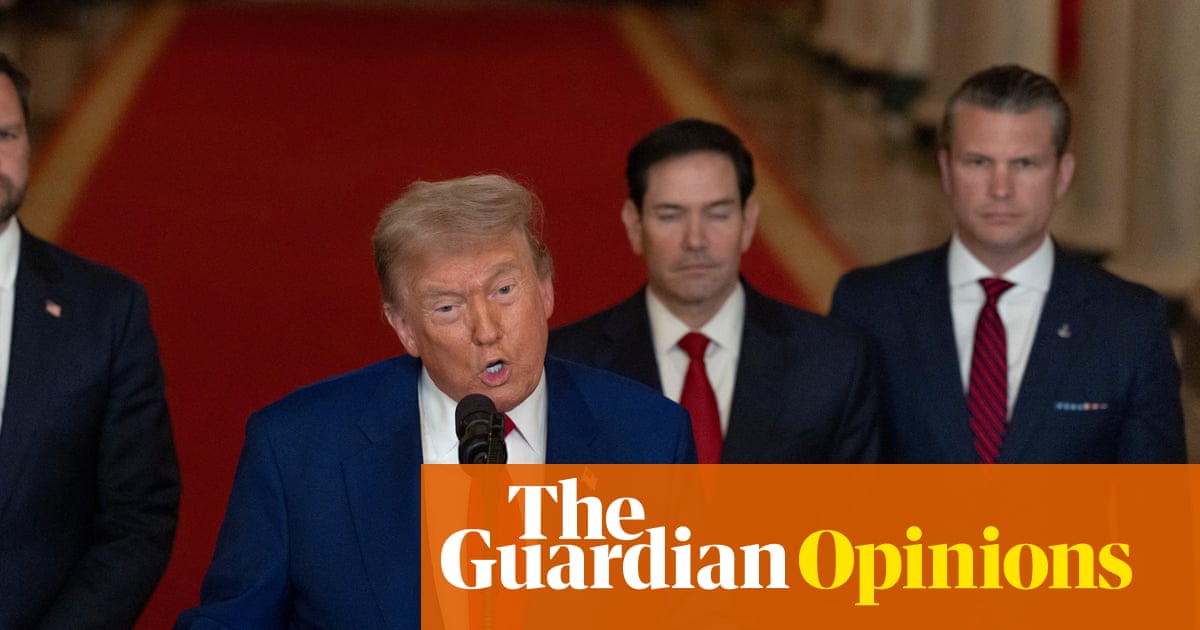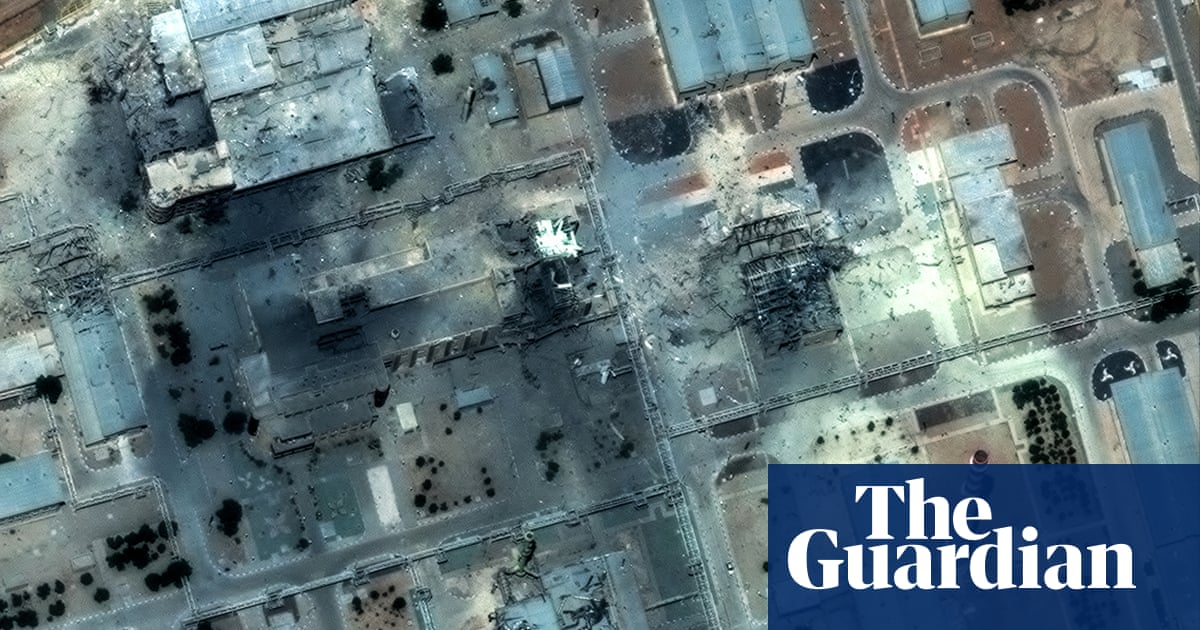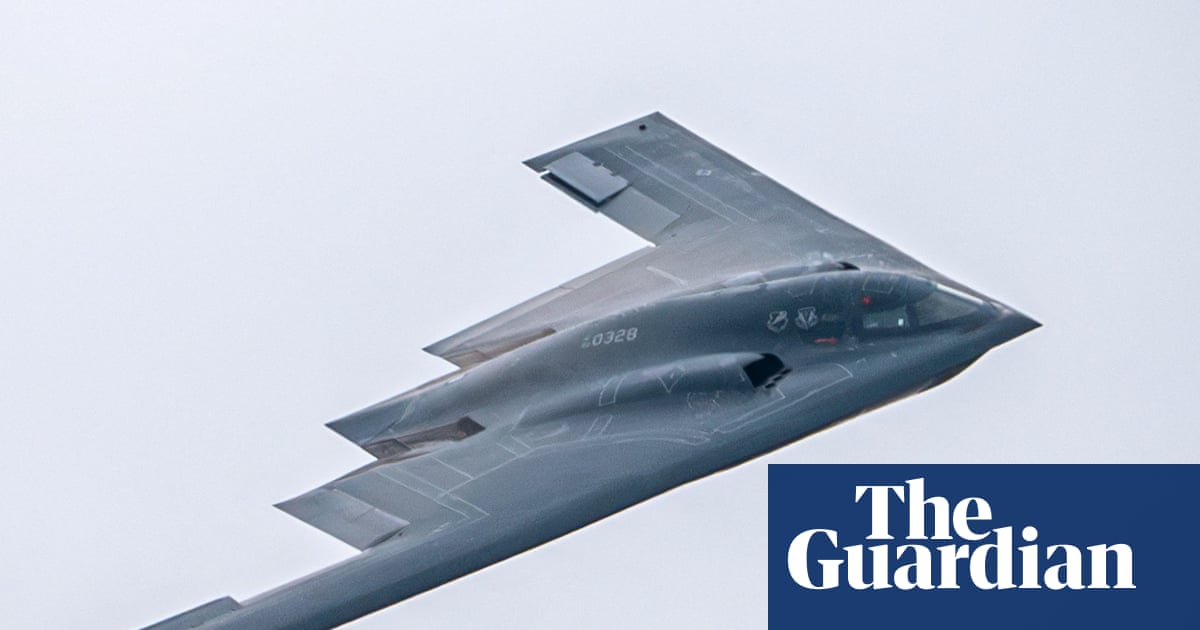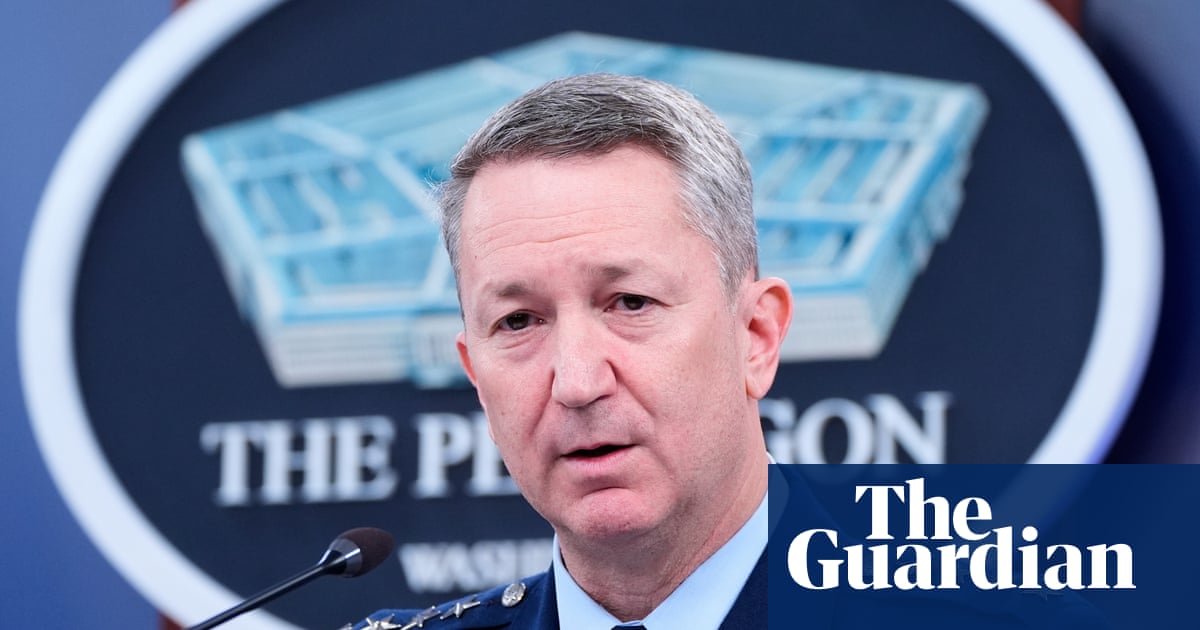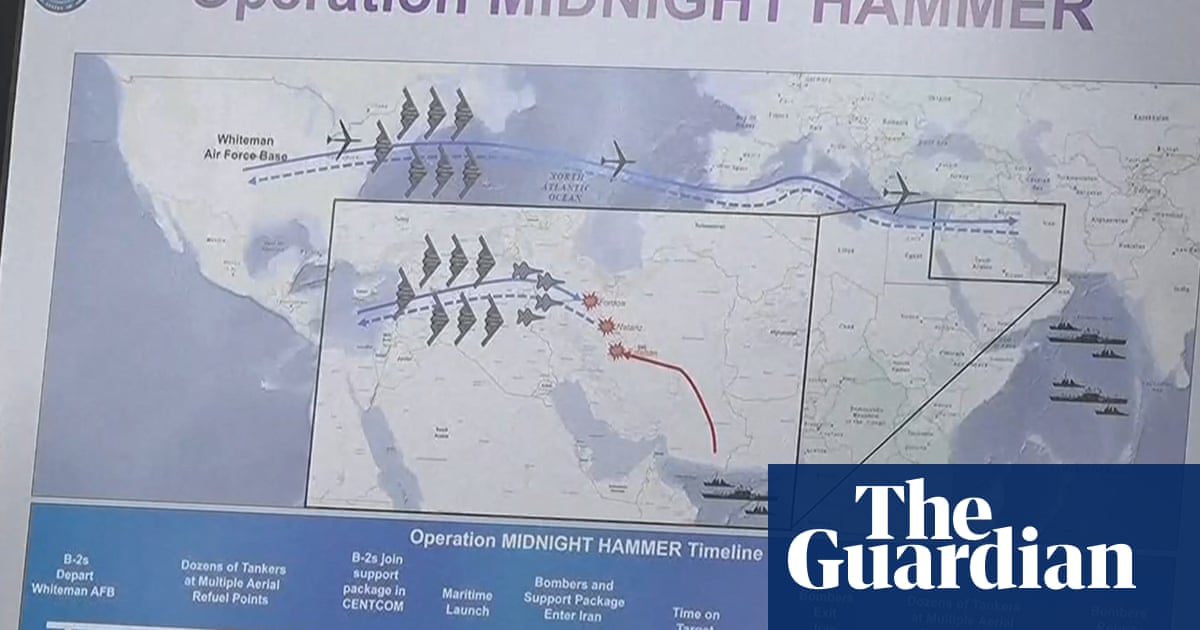Global financial markets have been plunged into turmoil as Donald Trump’s escalating trade war knocked trillions of dollars off the value of the world’s biggest companies and heightened fears of a US recession.
As world leaders reacted to the US president’s “liberation day” tariff policies demolishing the international trading order, about $2.5tn (£1.9tn) was wiped off Wall Street and share prices in other financial centres across the globe.
Experts said Trump’s sweeping border taxes of between 10% and 50% on the US’s traditional allies and enemies alike had dramatically added to the risk of a steep global downturn and a recession in the world’s biggest economy.
World leaders from Brussels to Beijing rounded on Trump. China condemned “unilateral bullying” practices and the EU said it was drawing up countermeasures.
While Trump timed his Wednesday evening Rose Garden address to avoid live tickers of crashing stock markets, that fate arrived when Asian exchanges opened hours later.
Drawing comparisons with the market crashes at the height of the coronavirus pandemic and the 2008 financial collapse, the sell-off swept the globe, sending exchanges plunging in Asia and Europe. The UK’s FTSE 100 index of blue-chip companies closed the day down 133 points, or 1.5%, to 8,474 after suffering its worst day since August.
All three main US stock markets were down at the end of trading in their worst day since June 2020, during the Covid pandemic. The tech-heavy Nasdaq fell 5.97%, while the S&P 500 and the Dow dropped 4.8% and 3.9%, respectively. Apple and Nvidia, two of the US’s largest companies by market value, lost a combined $470bn in value by midday.
Libby Cantrill, the head of US public policy at Pimco, one of the world’s largest bond fund managers, said investors were growing increasingly concerned as Trump appeared to be unwilling to soften his stance in the face of market turmoil, although hope remained that he would ultimately strike deals with US trading partners.
“There is likely a limit to how much pain he and his administration are willing to endure in order to rebalance the economy, but when that is or what that looks like remains to be seen,” she said.
“For now, we should assume that his pain tolerance is pretty high and that tariffs stick around for a while.”
The US dollar hit a six-month low, falling 2.2% on Thursday morning, amid a growing loss of confidence in a currency previously considered the safest in the world for most of the past century.
Warning clients to beware a “dollar confidence crisis”, George Saravelos, the head of foreign exchange research at Deutsche Bank, said: “The safe-haven properties of the dollar are being eroded.”
The heaviest falls in share prices on Thursday were reserved for US companies with complex international supply chains stretching into the countries that Trump is targeting with billions of dollars in fresh border taxes.
Apple, which makes most of its iPhones, tablets and other devices for the US market in China, was down 9.5% at close of trading, and there were steep declines for other large multinationals including Microsoft, Nvidia, Dell and HP.
Commodities fell sharply, including a 7% plunge in oil prices, reflecting growing concerns over the global economic outlook.
Speaking to reporters on Thursday, Trump said: “I think it’s going very well. It was an operation like when a patient gets operated on and it’s a big thing. I said this would be exactly the way it is … We’ve never seen anything like it. The markets are going to boom. The stock is going to boom. The country is going to boom.”
He added: “The rest of the world wants to see if there is any way they can make a deal. They’ve taken advantage of us for many years … I think it’s going to be unbelievable …”
after newsletter promotion
Over the last nearly 24 hours, Trump has faced widespread backlash from US lawmakers and global leaders over his tariffs plan, with the senior Republican senator Mitch McConnell calling it “bad policy” while Canada – a traditional American ally – called the tariffs “unjustified” and “unwanted”.
Tariffs will fall heavily on some of the world’s poorest countries, with nations in south-east Asia, including Myanmar, among the most affected.
Cambodia, where about one in five of the population live below the poverty line, was the worst-hit country in the region with a tariff rate of 49%. Vietnam faces 46% tariffs and Myanmar, reeling from a devastating earthquake and years of civil war after a 2021 military coup, was hit with 44%.
Analysts warned that garment and sports shoe makers, which rely heavily on production in south-east Asia, face rising costs, which will push up prices for consumers around the globe. The share prices of Nike, Adidas and Puma all fell steeply.
Analysts said Trump’s measures would raise the average tariff, or border tax, charged by the US to the highest level since 1933, in a development that threatened to sink the US into recession while increasing living costs for consumers.
Trump’s plans involve imposing a 10% tariff on all US trading partners from just after midnight on 5 April, before additional higher tariffs of up to 50% are imposed on countries including China, Vietnam and the EU.
The non-partisan Tax Foundation thinktank said it estimated the plan would represent a “$1.8tn tax hike” for US consumers, which would cause imports to fall by more than a quarter, or $900bn, in 2025.
While the measures will hit the US hard, researchers at the consultancy Oxford Economics said they could sink global economic growth to the lowest annual rate since the 2008 financial crisis, barring the height of the Covid pandemic.
Countries scrambled to assess the fallout and whether to retaliate. The UK, which was hit with the lowest level of 10% tariffs, suggested it may retaliate even as it tries to strike a deal with Washington.
It published a 417-page list of US products on which it could impose tariffs, including meat, fish and dairy products, whiskey and rum, clothing, motorcycles and musical instruments.
The business secretary, Jonathan Reynolds, told MPs that ministers were still pursuing an economic deal with the US as the priority but “we do reserve the right to take any action we deem necessary if a deal is not secured”.
The French president, Emmanuel Macron, said Trump’s decision to impose tariffs of 20% on EU goods was “brutal and unfounded”, while Germany’s outgoing chancellor, Olaf Scholz, called it “fundamentally wrong”.
Spain’s prime minister, Pedro Sánchez, said the “protectionist” tariffs ran “contrary to the interests of millions of citizens on this side of the Atlantic and in the US”.
The EU is thought to be preparing retaliatory tariffs on US consumer and industrial goods – likely to include emblematic products such as orange juice, blue jeans and Harley-Davidson motorbikes – to be announced in mid-April, in response to steel and aluminium tariffs previously announced by Trump.

 2 months ago
39
2 months ago
39
